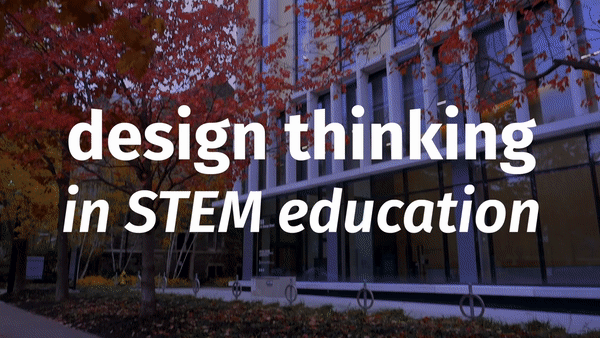
During fall semesters, I teach Soft Materials for Life, Energy, and the Environment (CHM 458/1307), a course that I started at U of T. This course will evolve over the years as I grow as an educator and incorporate new approaches and content into the course. In the framework of a dry lab, students will analyze and interpret characterization data, extending their existing knowledge of chemical fundamentals and experimental techniques to polymeric systems. Through a combination of lectures, case studies, dynamic collaborations, and self-paced assignments, students will actively engage with peers to understand course materials (including published literature), explore how polymer innovations are commercialized, and develop a toolkit for leveraging instrumentation to investigate hypotheses in research.
During winter semesters, I teach Organic and Synthetic Polymer Chemistry (CHM 1301), a course that highlights recent polymer advances and reviews their associated mechanisms.
DESIGN THINKING <> STEM EDUCATION
We created a workshop for instructors to share teaching strategies, discover active learning tools, and learn how to prototype solutions… all within the framework of design thinking! Our aim is to equip instructors with ways to increase student belonging in the classroom. This workshop is well-suited for a variety of instructors, from high-school teachers, graduate student teaching assistants, to university faculty. For example, an ideal case use is for incoming graduate students during orientation before becoming teaching assistants themselves. To hold the workshop, you do not need any experience in design thinking, just a willingness to facilitate discussions. All information is included in the presentations (e.g. embedded videos) and workbook. Check out the trailer above and sample slides below to get a better sense of the workshop!
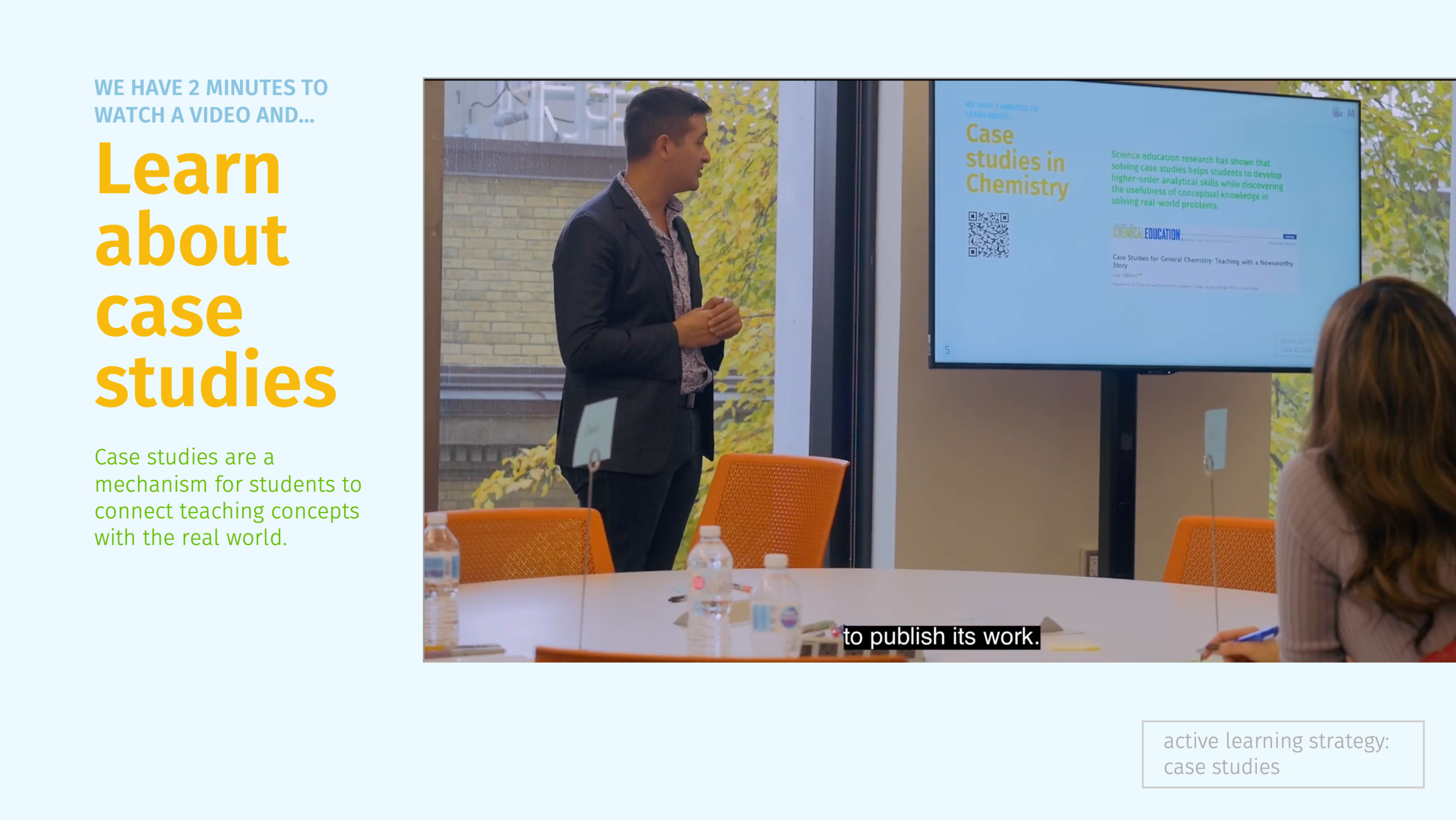
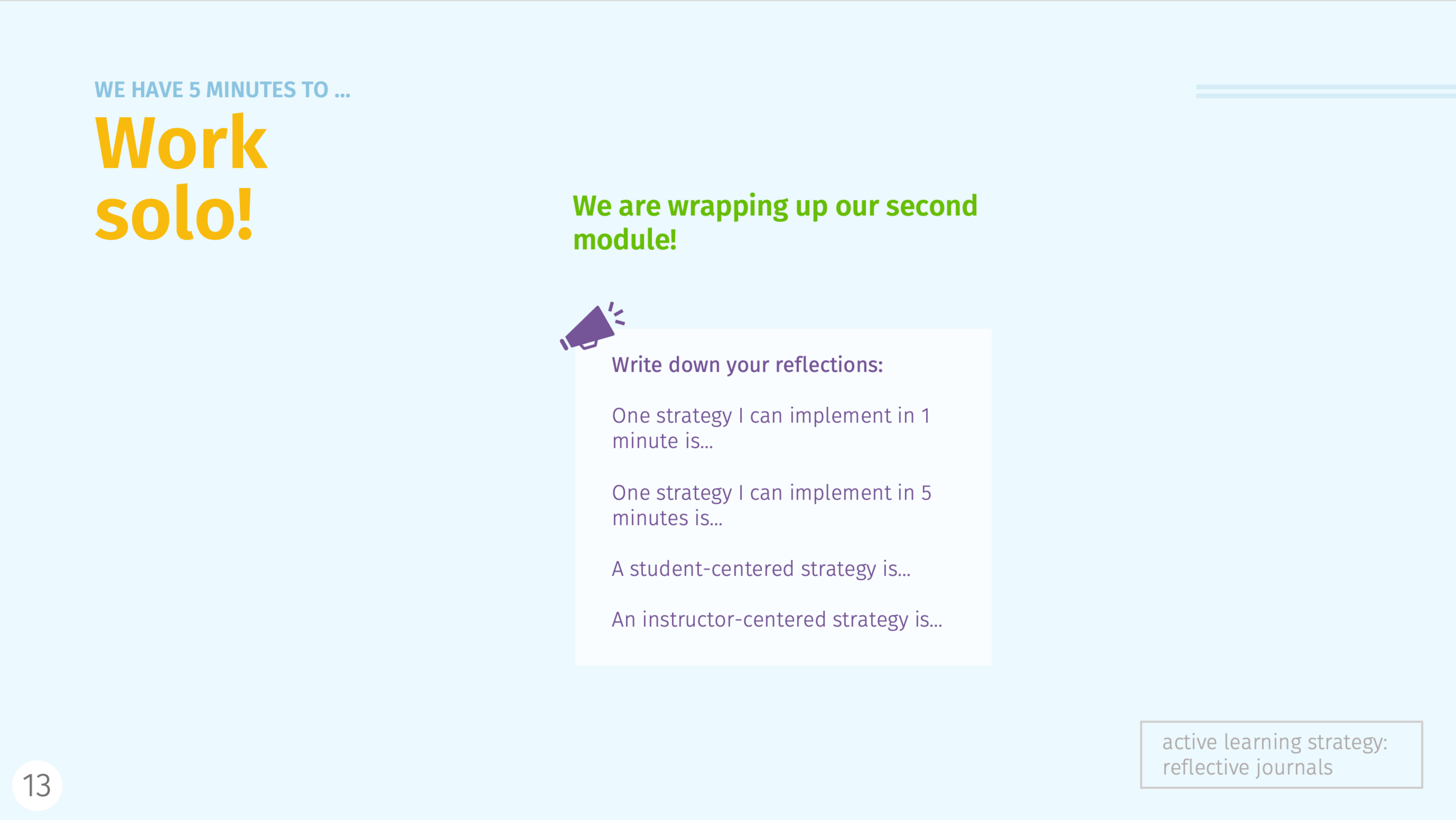
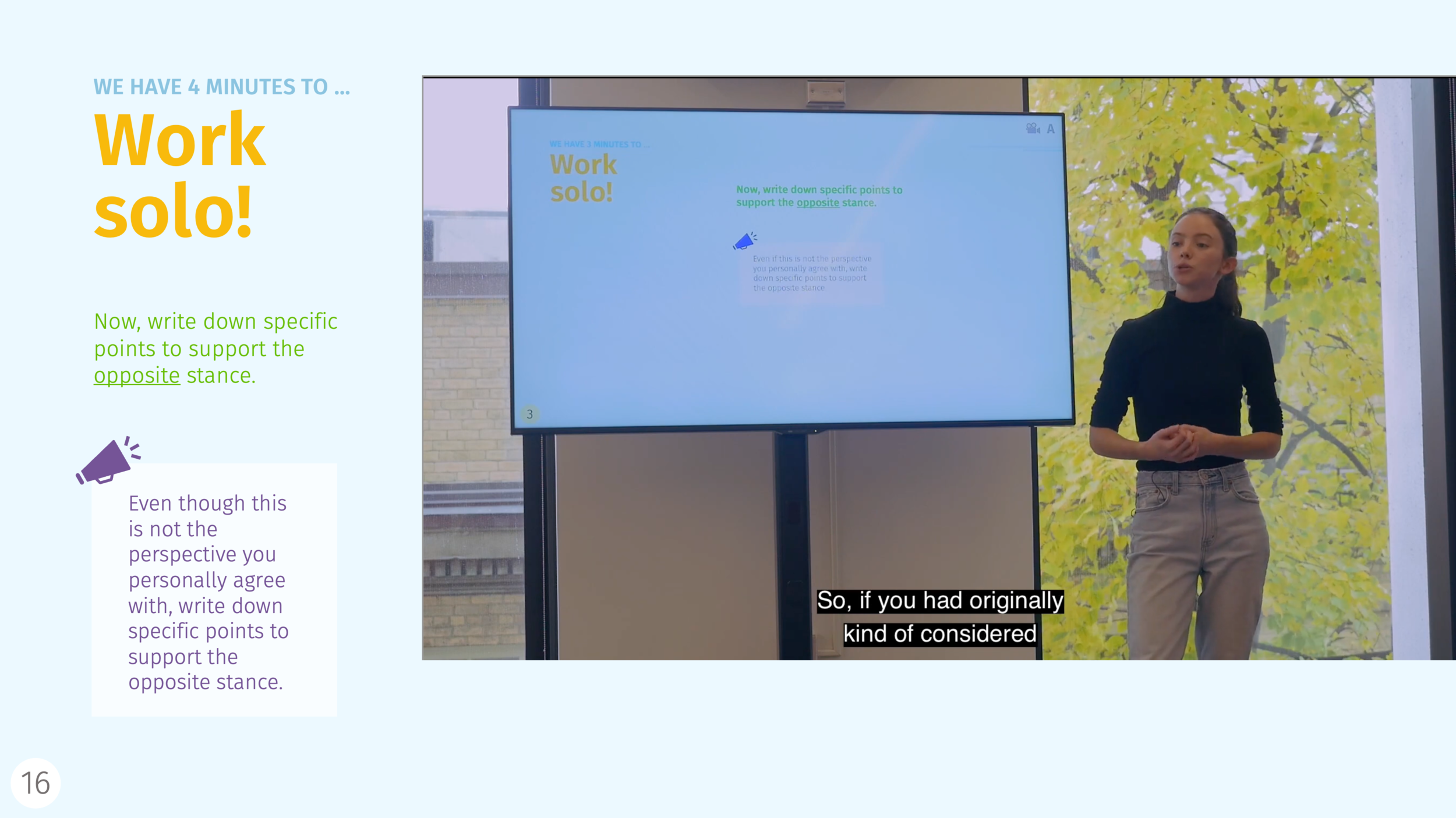

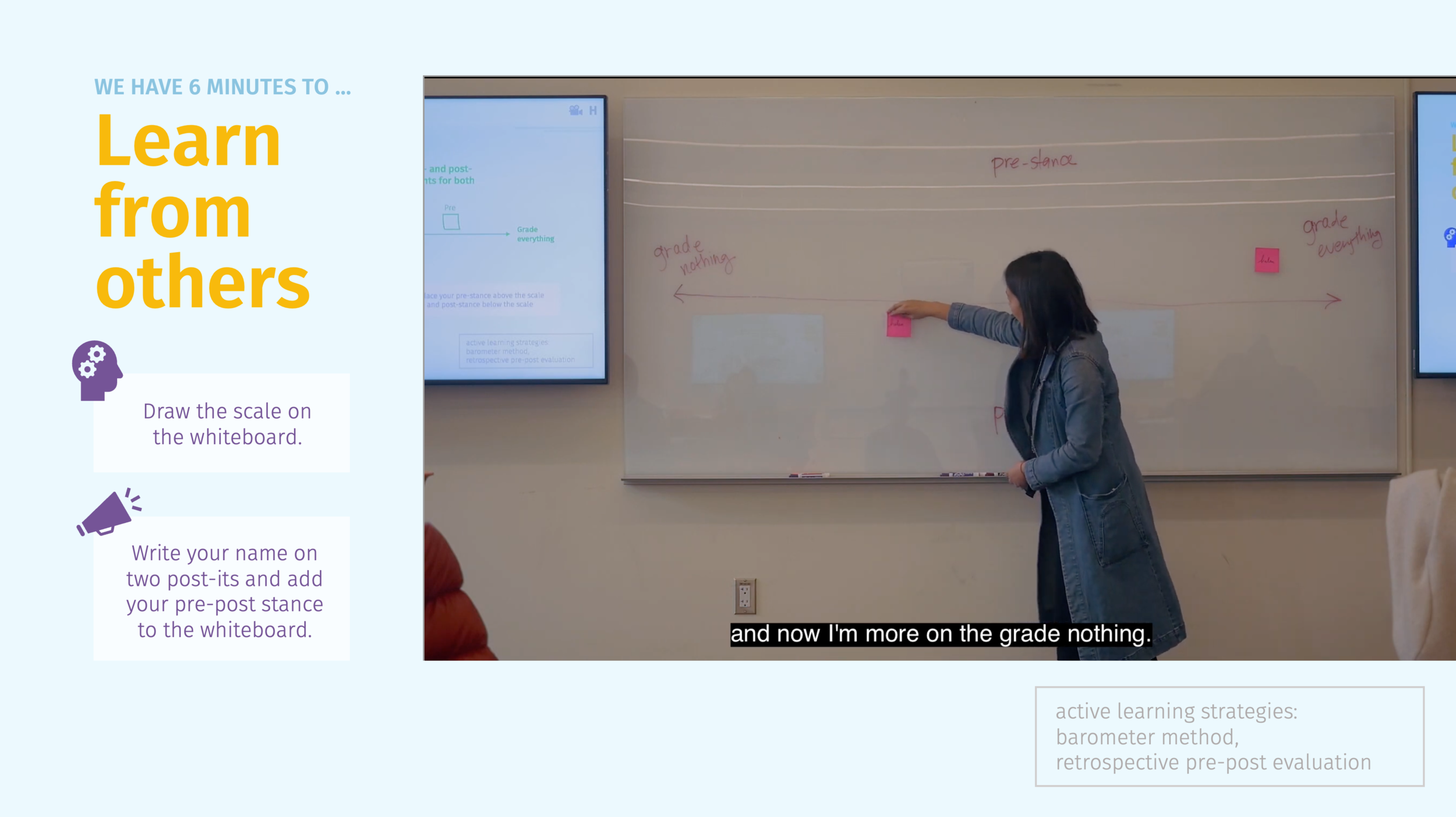
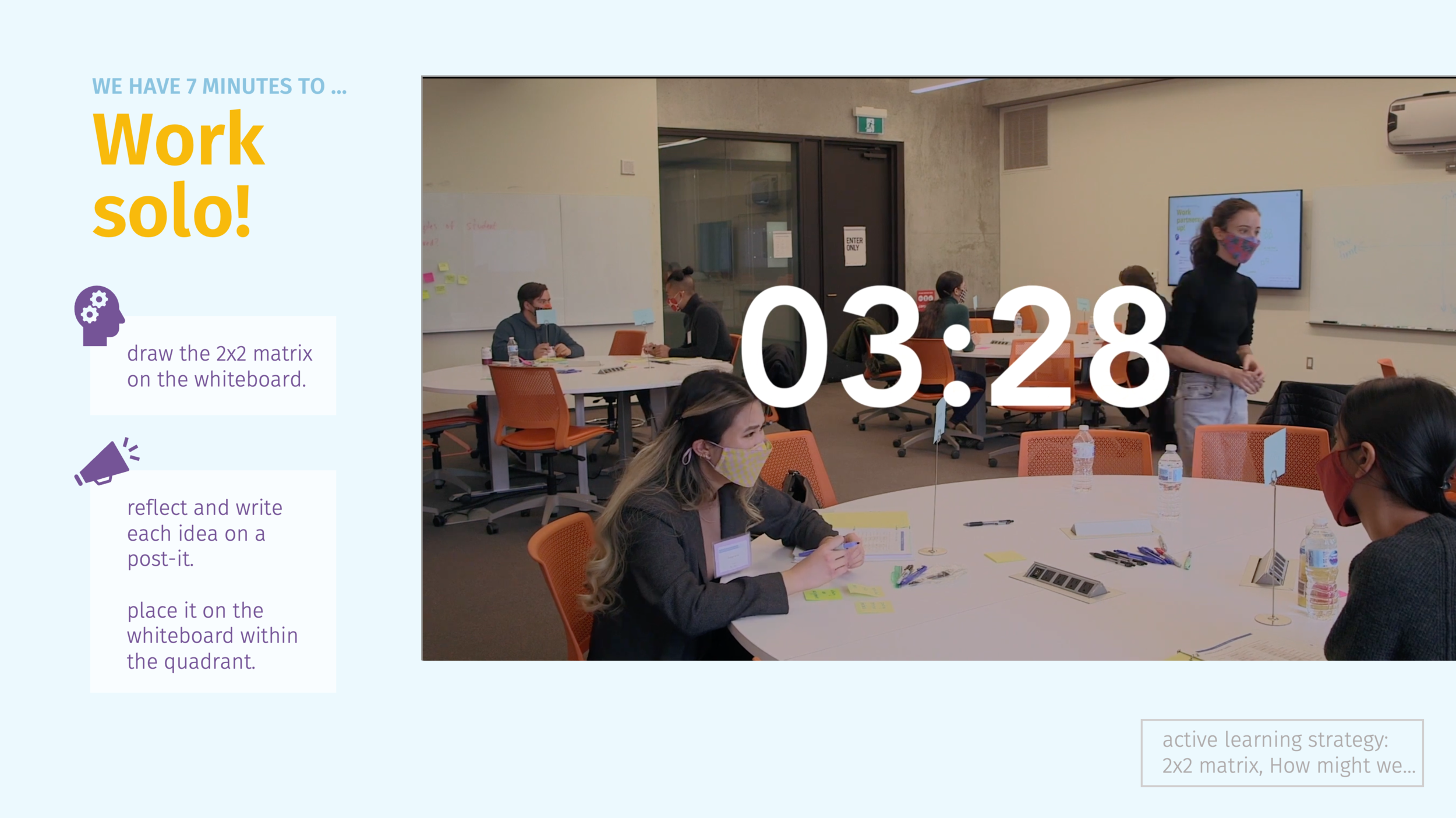
We created an in-person and virtual version of the workshop. There are also versions with English or French captioning.
It is best to download the powerpoints, as the embedded videos and graphics are not correctly displayed in the google drive preview.
VIRTUAL REALITY FOR POLYMER EDUCATION
Helen and Abbey are collaborators on an eCampus Ontario grant with Profs. Kyle Belozerov and Derek Jackson to create a collection of VR modules to teach chemistry. While Helen only played an advisory role, Abbey led the modules on introducing polymers! To download the collection of ready-to-use tutorials, please check out the open library.
LESSONS FROM MY SCIENTIFIC TEACHING COURSE
These course materials were provided during the 2020 Scientific Teaching Institute, moderated by Prof. Kimberly Tanner at UCSF and Jeff Schinske at Foothill Community College (reprinted with permission). I firsthand experienced the effectiveness of these teaching strategies during the course and hope to integrate these strategies in my own teaching… I encourage you to explore!
SCIENTIFIC SPOTLIGHTS
Scientific Spotlights can be a valuable tool to shift students’ stereotypes of scientists and enhance science identity. For my polymer course (CHM 446/1306) at the University of Toronto, I am highlighting polymer scientists who have inspired me in my career. You can read more about my story here.
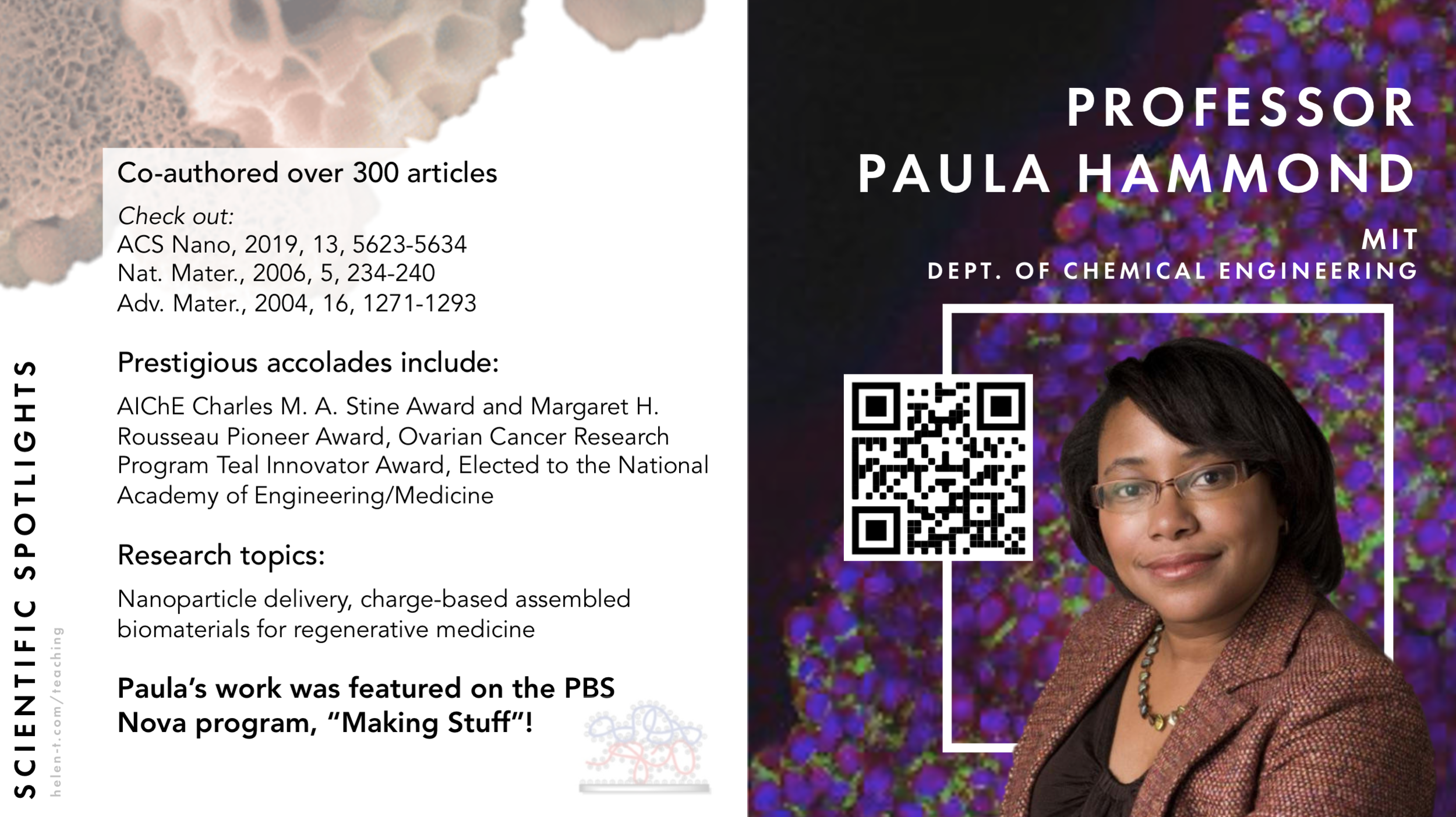
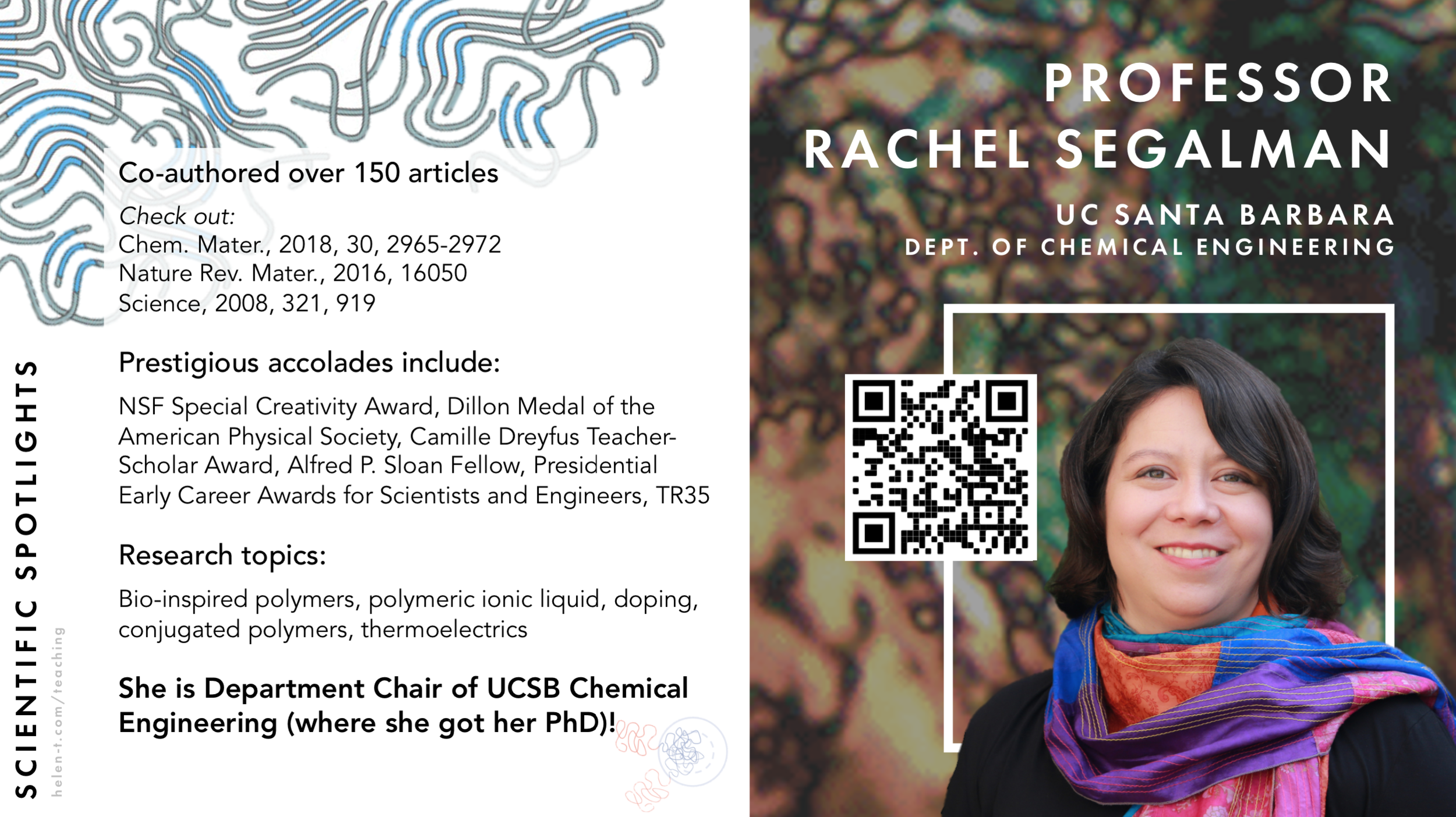
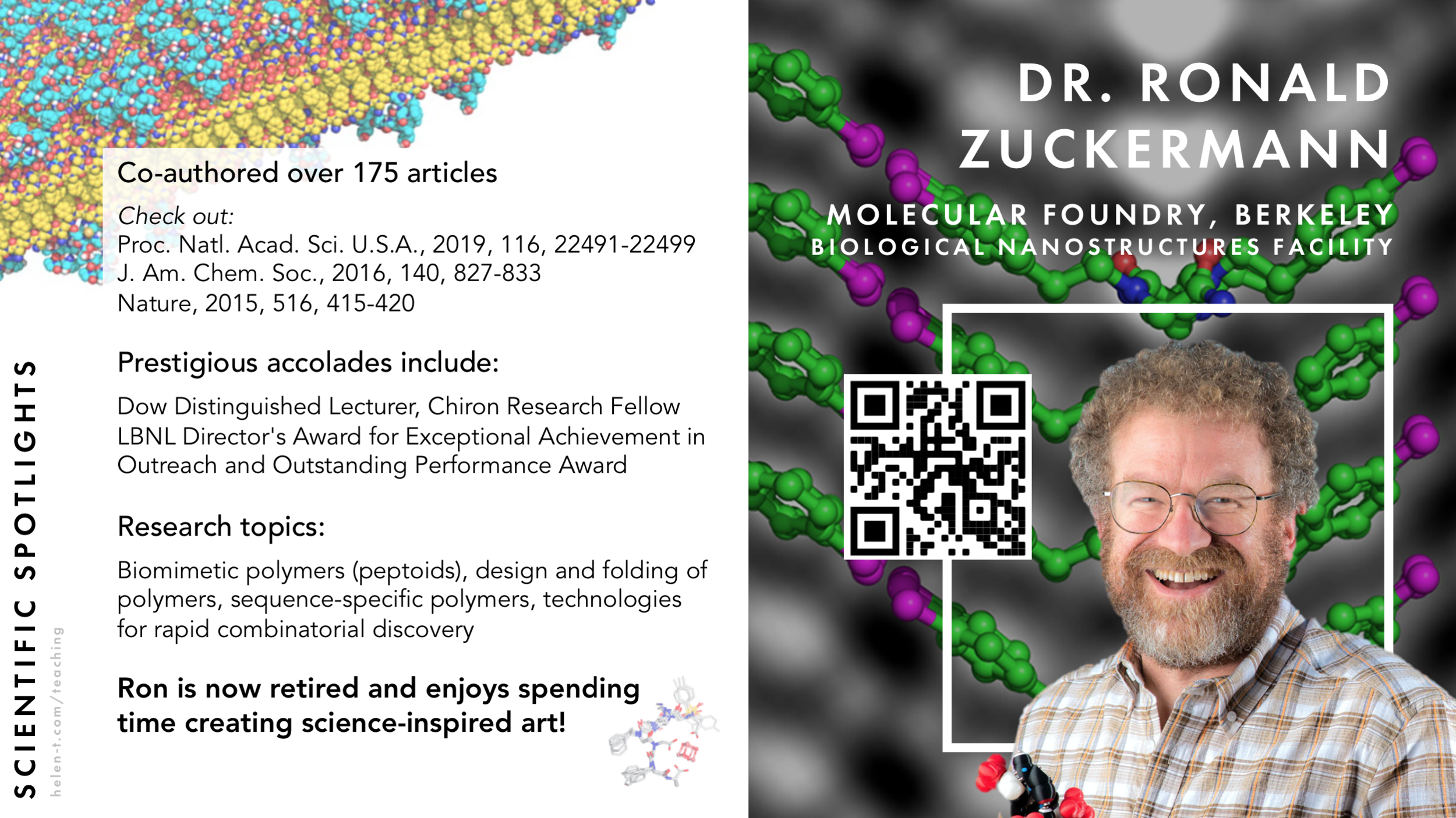
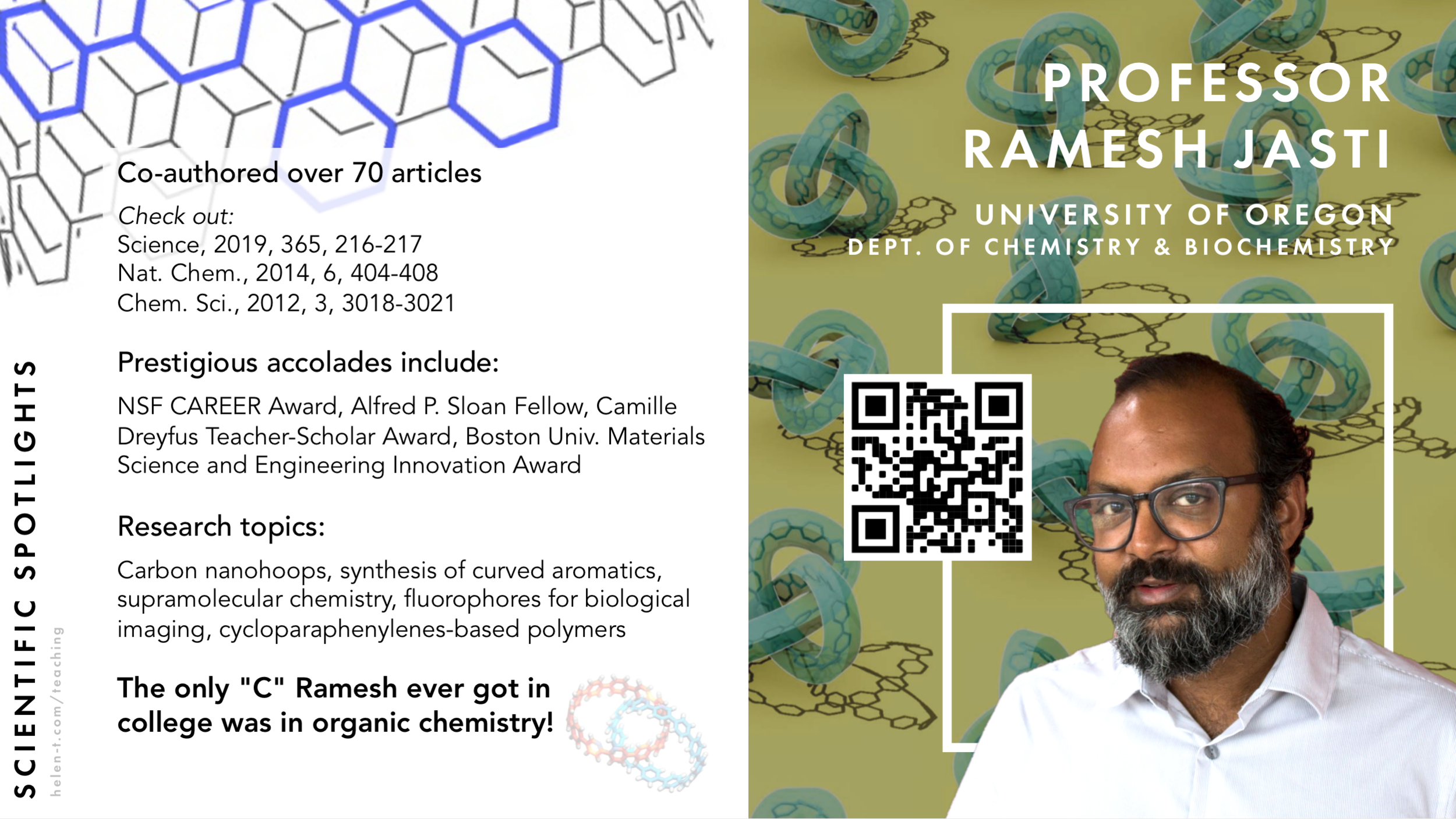
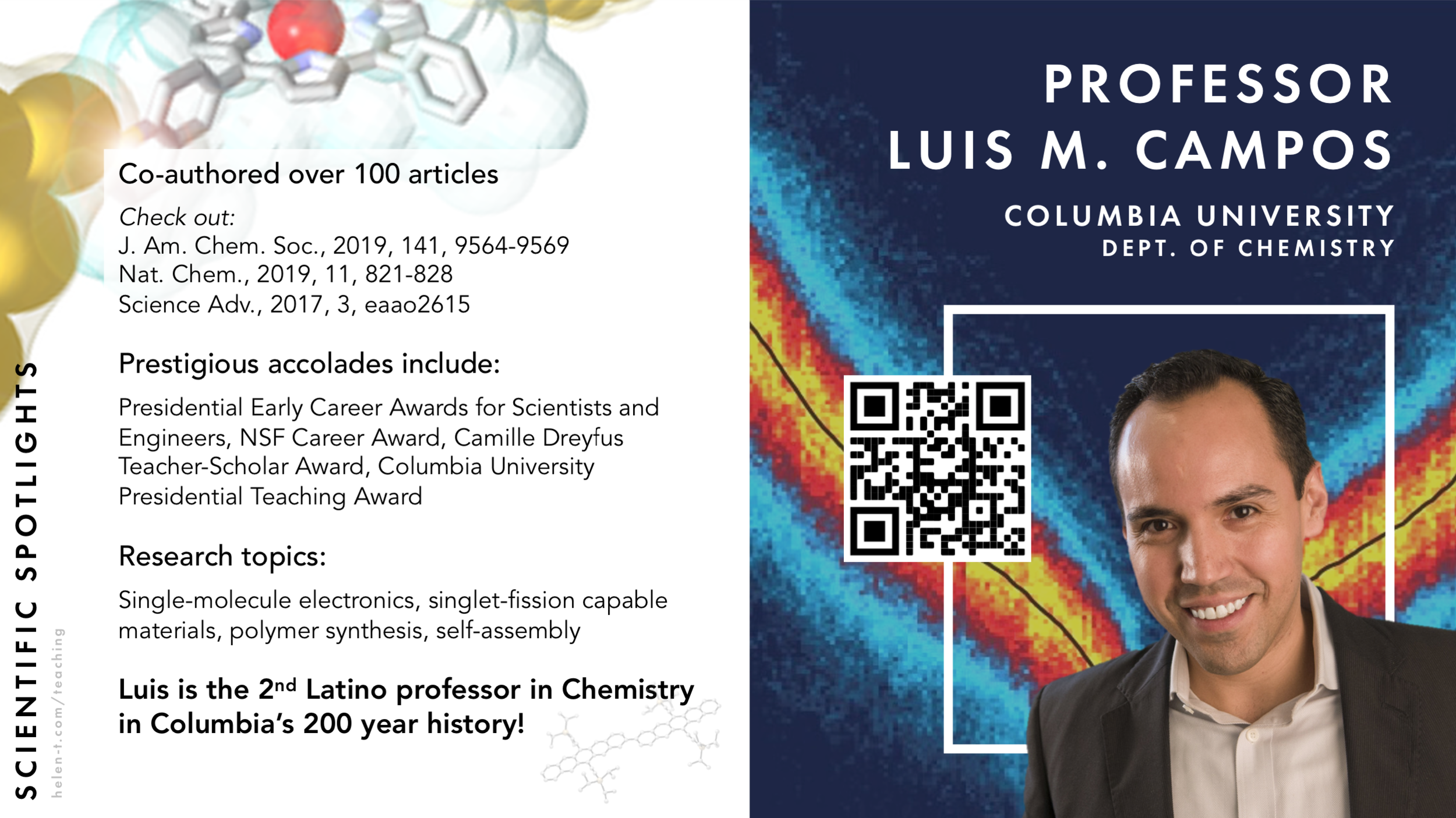
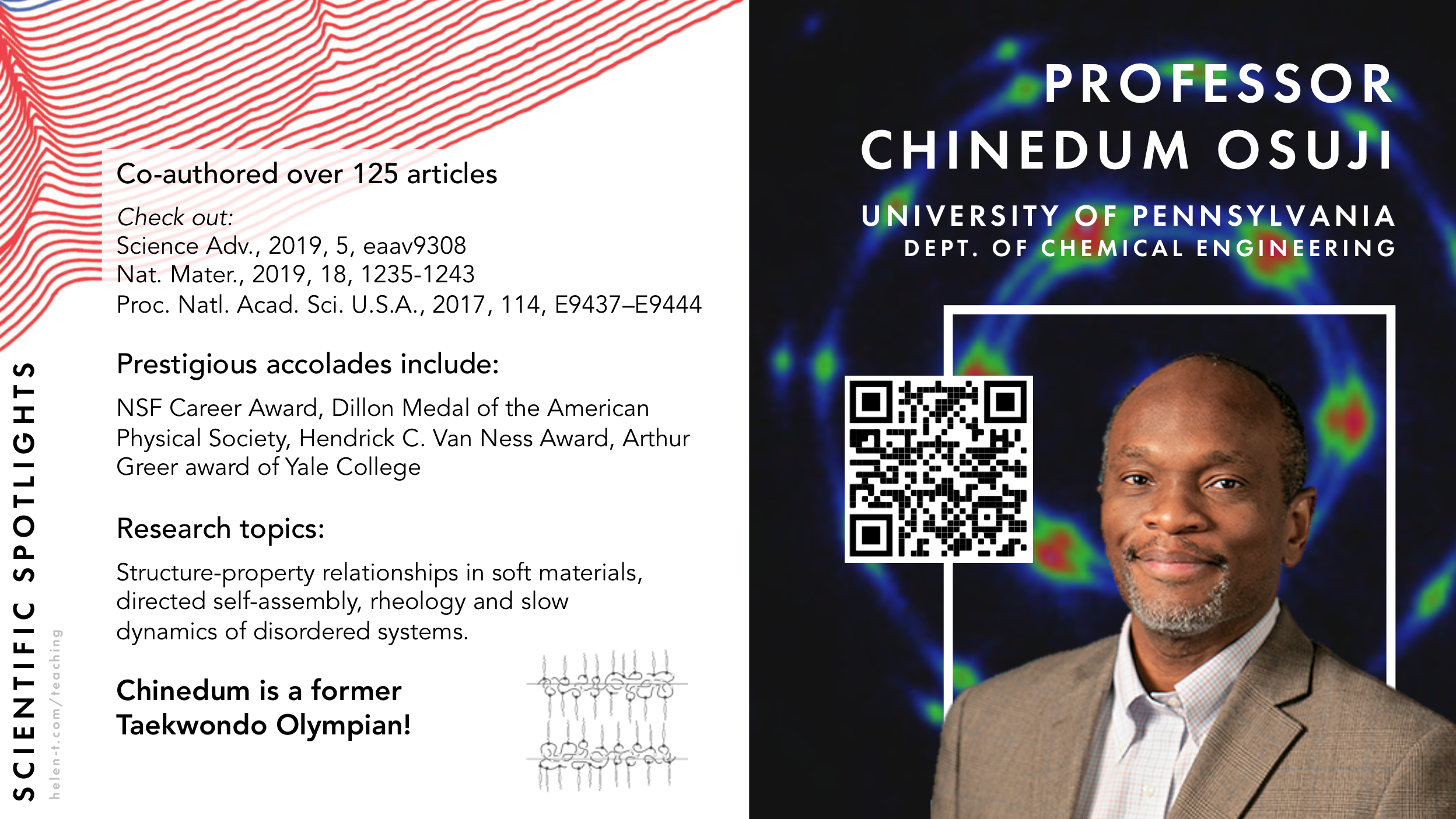
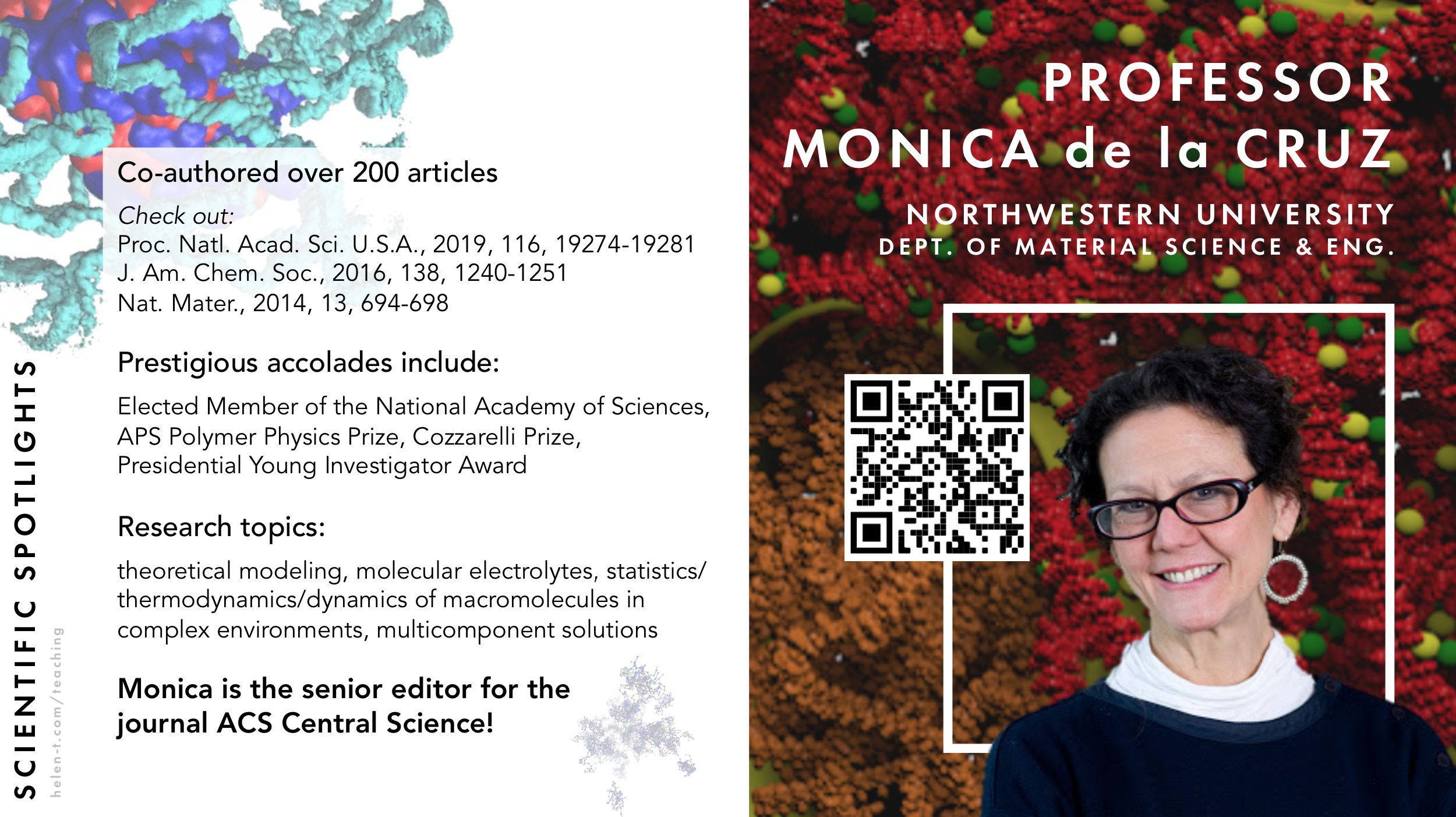
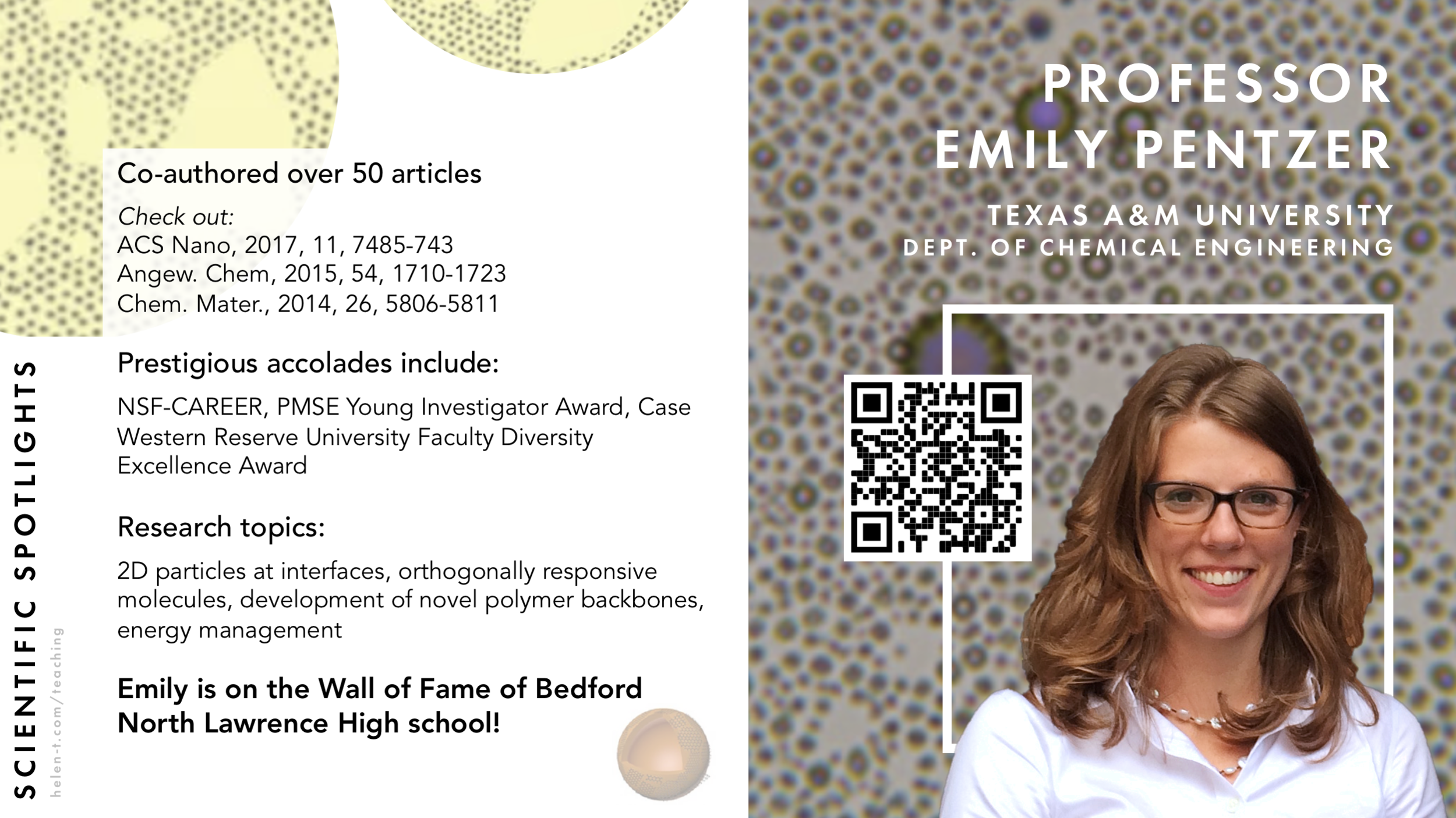
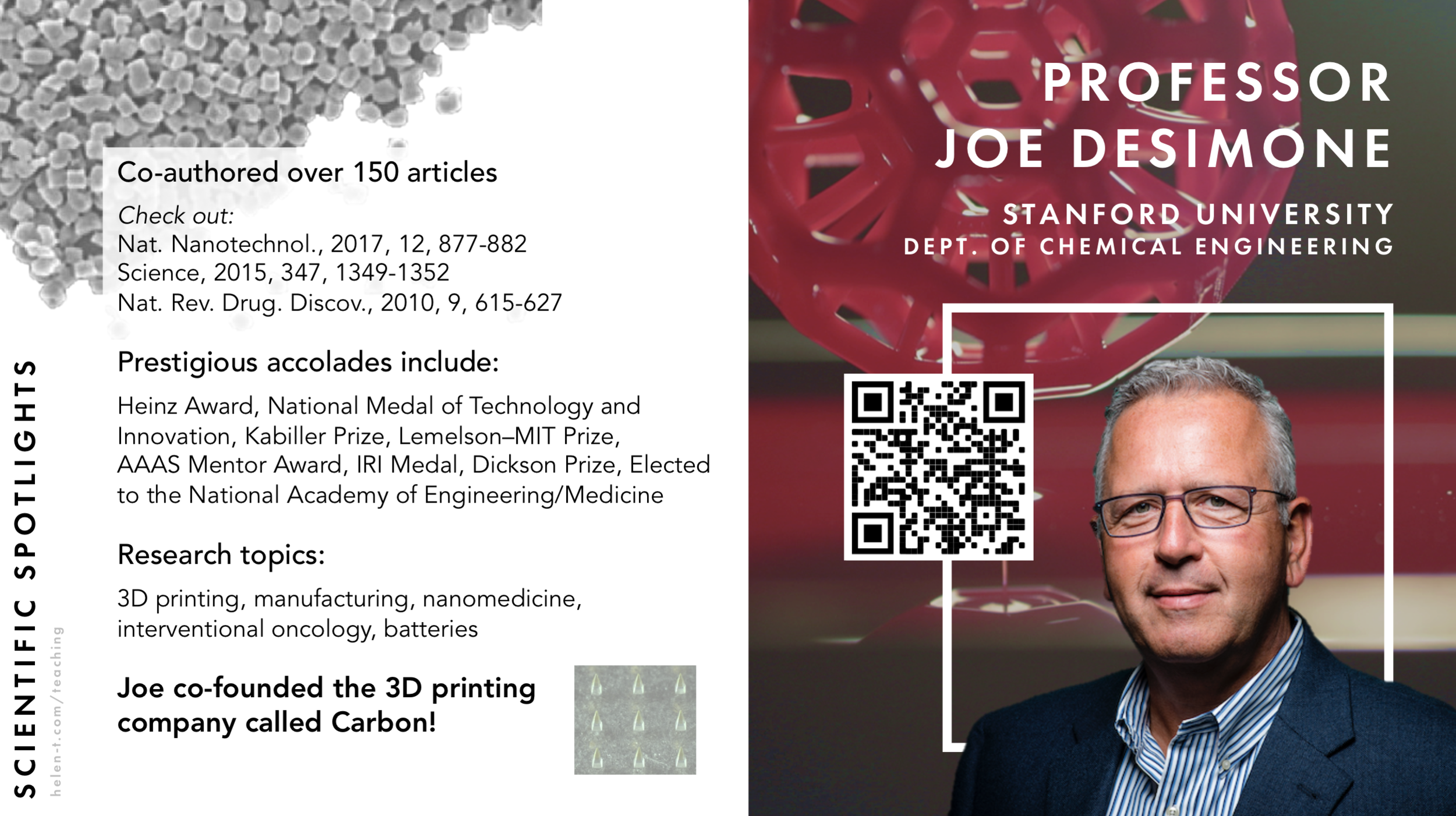
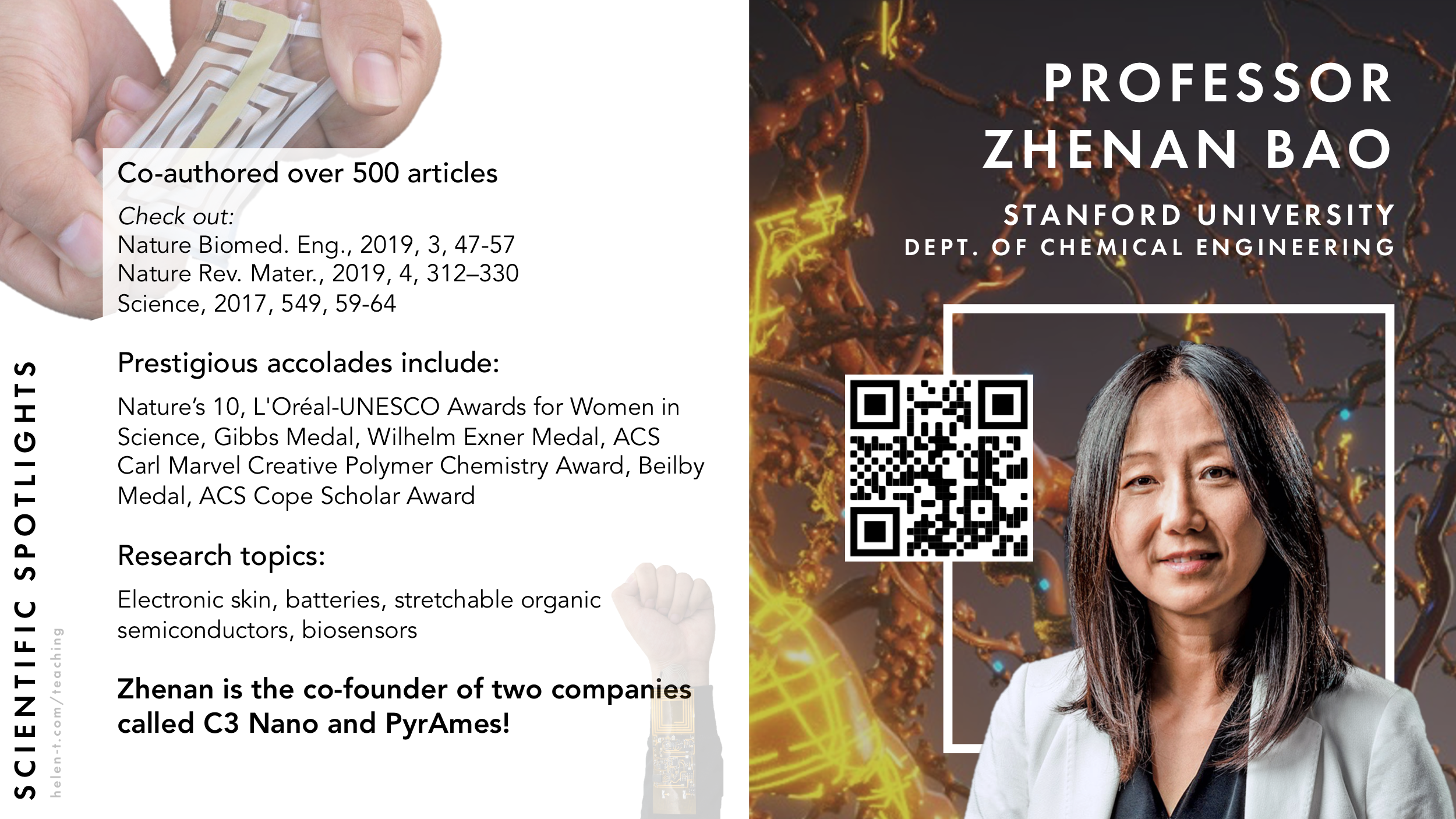
I would love to hear about anyone integrating these slides into their teaching! Please email me at tran@utoronto.ca if you use them, or would like higher resolution images.
CHEMISTRY TEACHING FELLOWSHIP PROGRAM
I encourage graduate students at the University of Toronto to participate in the Chemistry Teaching Fellowship program (CTFP)! This unique program offers compensation for graduate students to lead the development of a specific teaching initiative. It is a great opportunity for enthusiastic educators, especially aspiring professors, to implement something new. Previous fellows I’ve mentored have developed a Python project to create Scientific Spotlights as a homework assignment, a scientific communication exercise, and venture capitalist business memorandums for the polymer chemistry start-up pitches in my course! If you are interested in having me as a faculty advisor, please email me.
I also recommend checking out the “Big Ideas” at School Retool, which aims at hacking toward deeper learning. While these resources are geared towards high school students, I found the concepts relevant for university-level teaching.

